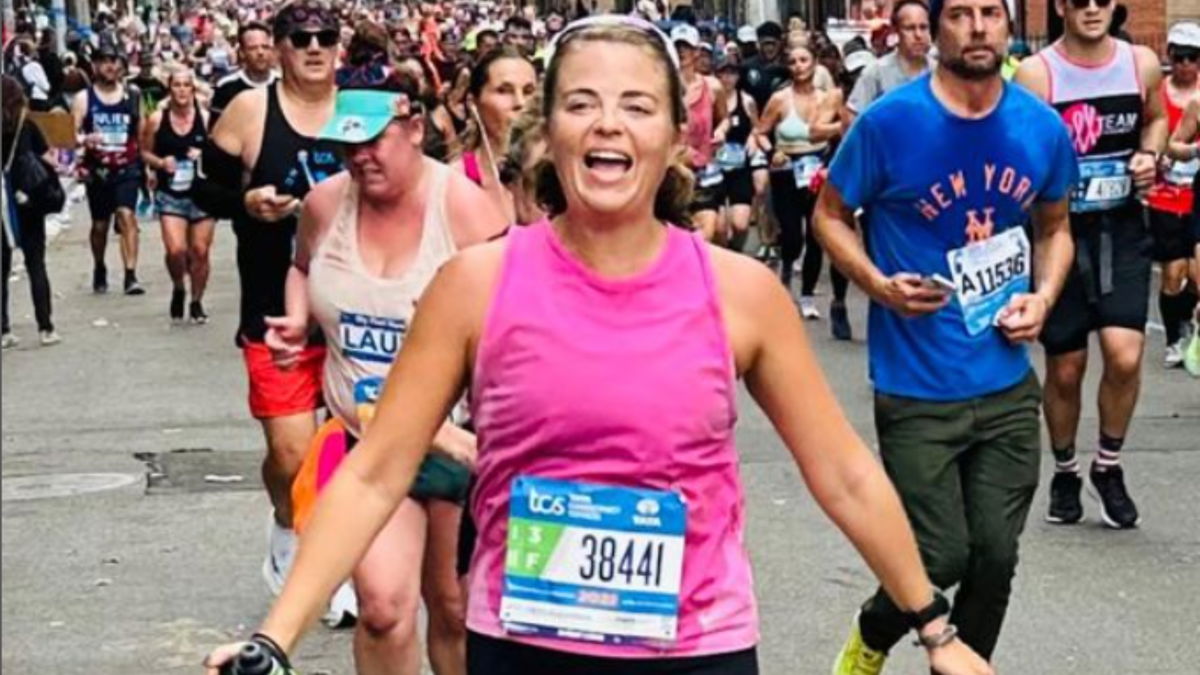

Ahead of the Paris Games, the track and field world is mired in controversy as some disappointing revelations are made by several athletes. A U.S. marathoner, who recently qualified for the Olympics, opened up about her struggles in a recent interview. She divulged how athletes are not being paid their dues, forcing them to pick up jobs alongside rigorous training.
Watch What’s Trending Now!
This issue has sparked a broader debate about the inequalities in athlete compensation. For a long time, athletes have been voicing out against the unfair payment and delays that have created holes in the system. Now, in a new report, the truth is being laid out.
ADVERTISEMENT
U.S. marathoner highlights persistent pay disparities in track and field
Ashley Uhl-Leavitt, a New York City marathon legend, emphasized her difficult journey during her recent interview with Al Jazeera. “Hundreds of thousands of people tried to get a handful [marathon] spots. It was such a long shot,” she said. In less than 100 days, athletes and spectators will gather in Paris, France, for the Olympics, a global event that unites people despite ongoing geopolitical tensions. In the midst of this, Ashley embodies the struggle many athletes face. Despite her accolades, she cannot train full-time as she juggles two jobs—personal training and bartending—yet still struggles to make ends meet.

ADVERTISEMENT
This is because the grim reality is that most expenses such as traveling to compete and medical bills are out of pocket. Moreover, there is no salary for athletes which forces them to live below the poverty line. She has even had to turn to crowdfunding on GoFundMe to support her career ambitions. Corporations fund only very few Olympic and Paralympic athletes. The stipends also only start after athletes have qualified for the Olympics and are as low as a few hundred dollars a month.
ADVERTISEMENT
Ashley said that more than ninety percent of all Olympic aspirants spend nearly $22,000 in competition fees and memberships. But, 1/4th of Olympians make less than $15,000 annually. The disparity is glaring. Medical bills can also be racked up to $10,000. Ashley Uhl-Leavitt is not the only one, as even boxer Jennifer Lozano described her financial plight saying that though she had been getting a stipend for the past 8 months, all costs came from her own savings before she qualified. In this way, systematically athletes are being thrust into poverty and destitution despite having immense talent.
Top Stories
Forced to Leave FOX, Cowboys Legend Troy Aikman Says ESPN Is Like ‘U.S. Government’ & Clearly Distinguishes the Two Networks
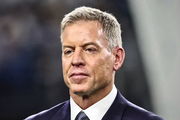
Who Is Paige Shiver? All About Michigan Football Staffer & Daughter of Veteran Bears Scout Jeff Shiver

Charley Hull Opens Up on Traumatic Divorce from Ex-Husband for the First Time Ever
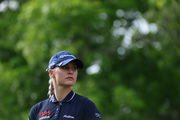
Cowboys Legend Troy Aikman Teases NFL Comeback After Airing FOX’s Dirty Laundry
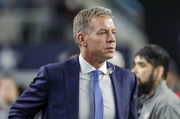
Todd Bowles Points Fingers at Baker Mayfield & Co. in a Strong Statement That Could Get Him Punished After Bucs Loss
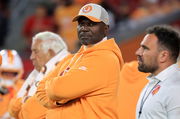
LIV Golf to Cut Ties With Veteran Pro After His PGA Tour Return Intentions Became Public

Unfair and delayed payments plaguing athletes
Despite being the creme de la creme of society, track and field athletes are suffering due to insufficient and delayed pay. American sprinter Kyree King, who won the silver medal in the 2022 NACAC Championships, expressed his frustration at receiving his prize money late. He had to wait 8 months to receive just $2000. Additionally, long jumper Tyrone Smith said they had to sell a car immediately even after delivering world-leading performances due to financial difficulties. Even track athlete Chelsea Hayes revealed she had to work 3 jobs while training for the Olympics. Well-known athletes like Sha’Carri Richardson have withdrawn from competitions in the past due to the high fees. Noah Lyles even called it a “dying sport.” In response, World Athletics recently announced a $50,000 prize money for the gold medalists in the Paris Olympics 2024.
ADVERTISEMENT
In a recent stand taken by the Paralympians, protests are underway for unfair pay. They emphasized the challenges Paralympians face, like higher training and equipment costs, that exacerbate their financial struggles. Paralympian Stef Reid also recently said, “I would say the money is there and that’s because the IOC shares its broadcast revenues across all summer sports.” But this money is not being spent on the athletes and they are now demanding to be paid the appropriate wages. The brave stance has opened up an opportunity for other athletes to do the same, so that there may be a shift in the correct direction.
ADVERTISEMENT
ADVERTISEMENT
ADVERTISEMENT

